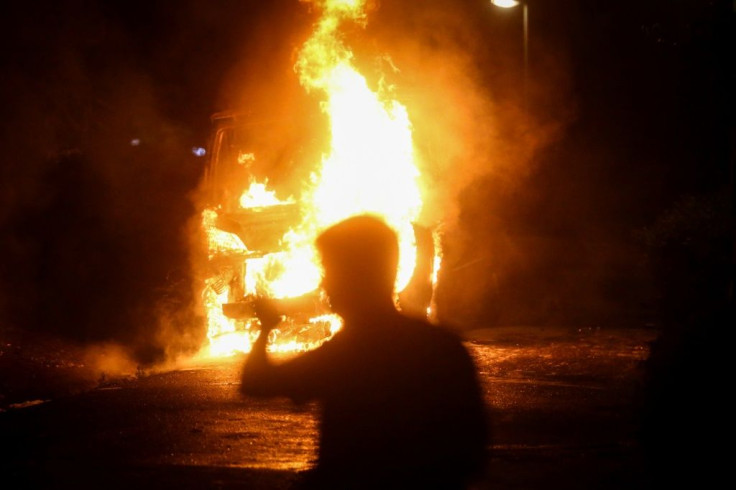Seattle News Outlets Ordered To Give Police Unreleased Photos, Videos From May 30 BLM Protests

KEY POINTS
- A Seattle judge ruled five local outlets must comply with a police subpoena and turn over unreleased materials related to the chaotic May 30 Black Lives Matter protest in the city
- The subpoena is part of the police's investigation into the alleged arson of six police vehicles and theft of police weapons during the protests
- The judge restricted access to material only filmed on professional equipment and said police could not use the materials to make arrests in unrelated crimes
A Seattle judge ruled five local news outlets must comply with a subpoena by the police department for unreleased material from the Black Lives Matter protest on May 30 that turned violent, according to The Hill and other media reports. The five outlets that will have to turn over photo and videos are the Seattle Times and TV stations KIRO 7, KING 5, KOMO 4 and KCPQ 13.
The subpoena is part of an ongoing investigation into the alleged arson of police cruisers and theft of police firearms during the chaotic protest. Seattle police said six police vehicles were heavily damaged after the culprits doused the cars in accelerant and ignited them during the May 30 protest. A loaded Glock 43 handgun and M4 carbine rifle with a suppressor attachment were also allegedly taken from the car.
Judge Nelson Lee said given the circumstances of the case, the outlets were not shielded by Washington state laws restricting access to unreleased materials and that Seattle police had met the burden of proof needed to supersede the shield law.
Lee did set limits on the materials use, namely identifying suspects related only to the investigation in question and the police could not use it to arrest anyone else for unrelated crimes. He also restricted access to material recorded on professional equipment and said they could not confiscate video or photos from reporters’ phones.
Despite the limits, Lee’s decision has been met with criticism by the outlets targeted by the subpoena arguing it violates their “independence” and could potentially put staff at physical risk.
“The media exist in large part to hold governments, including law enforcement agencies, accountable to the public,” Seattle Times Executive Editor Michele Matassa Flores said. “We don’t work in concert with government, and it’s important to our credibility and effectiveness to retain our independence from those we cover.”
© Copyright IBTimes 2025. All rights reserved.





















